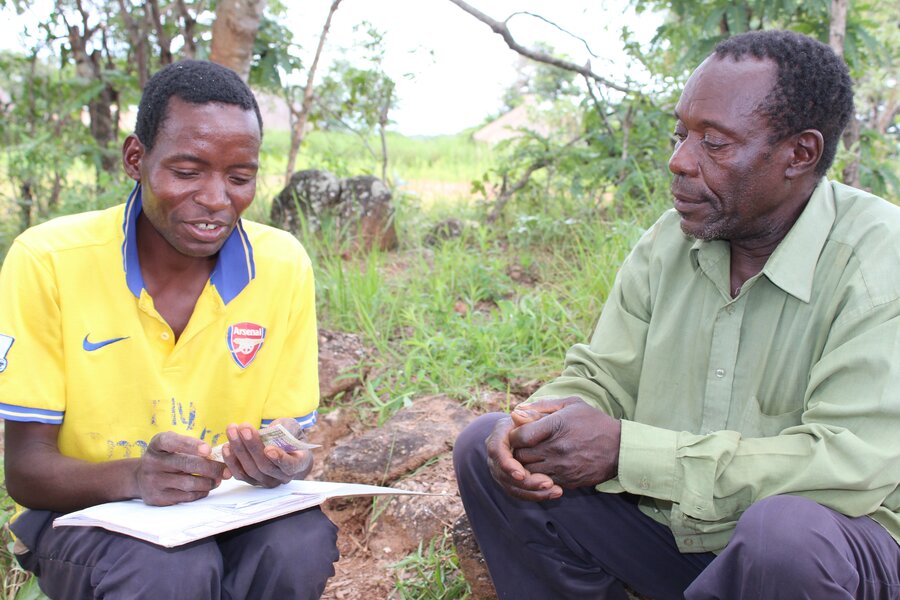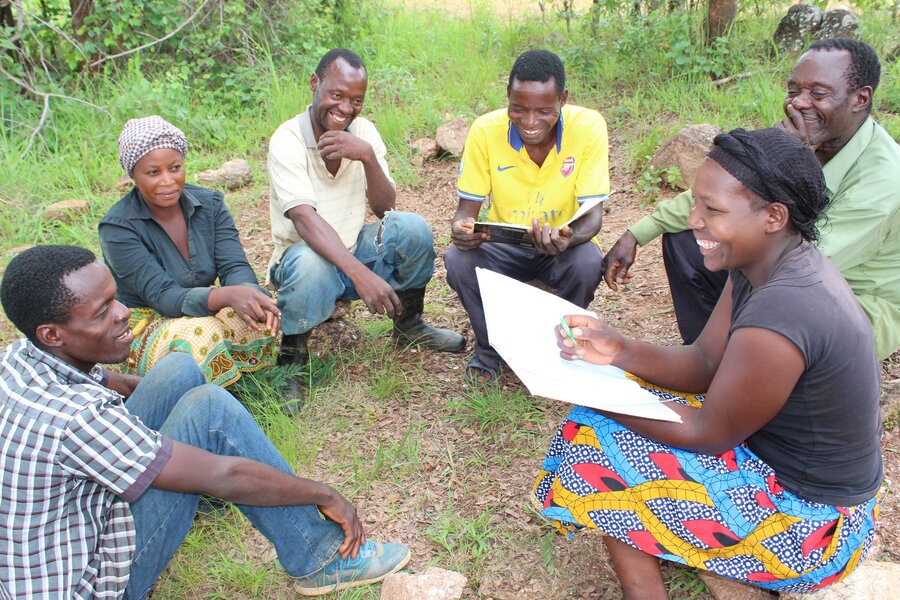The savings group transforming the lives of smallholder farmers in Zambia
"Our livelihood has changed since we started the savings group. For us, it is more than just saving money, it's an investment, a way of building a better future for ourselves, our families and the community." These are the words smallholder farmer George Mwene, who is part of the Silekwa savings group in Sikwale village, Pemba District in Zambia.
In a village like Sikwale, the majority of people are smallholder farmers and are highly dependent on rainfed agriculture, in an area prone to more frequent and longer dry spells and drought, erratic rainfall and lack of transportation and access to farming materials and credit.
To combat these challenges, farmers formed a group that helps them to save money to buy materials such as hybrid seed and fertilizer, and to feed their families and pay school fees for their children.

The Silekwa savings group was formed in August 2016 as one component of the R4 Rural Resilience Project (R4).
The project is funded by the Swiss Agency for Development and Cooperation (SDC) and implemented by Development Aid from People to People (DAPP), a Zambia-based NGO, with the support of World Food Programme (WFP).
Members are trained in a ‘Savings for Change' method, business skills and entrepreneurship, which has helped villagers to save regularly, borrow from their group's revolving fund, and repay loans at a 10 percent interest rate.
At the end of each saving cycle, which runs for nine months, the money is shared according to respective individual savings, plus interest earned from internal borrowing and penalties. The group strategically schedules the distribution of profits during critical times, such as the onset of the rainy or hungry season when money is scarce.
The group is making a difference in the lives of many farmers in Sikwale village. Milimo Haluma, who has often depended on Government agriculture subsidies, has used his shares of the savings to buy seeds.

Apart from savings contributing to farming inputs, they also enable group members to send their children to school. Paul Chiwele said he could pay school fees for his three children. "My children can go to school and attain a good education because of the savings group," says Paul. He adds that seeing his children attend school and be educated brings him happiness as a father.
The Silekwa savings group is also changing the lives of women farmers. Women who choose to join become better connected socially within their village and are more likely to hold leadership positions. This allows them to make decisions at the household and village level.
A good example is the case of Evenia Haluma, the Chairperson of the Silekwa savings group. Evenia used her savings plus profit shares to start up a small bakery business which now helps her to sustain her household. She says: "I am happy to be part of the group because I am able to take care of my family and pay my household expenses".
Out of a total of 1,159 participants in 60 savings groups in Pemba District, 692 are women.
Stories told by farmers from Sikwale village show that savings groups can be an effective and complementary approach to financial inclusion, and to other development initiatives that can benefit the community as well as the country as a whole.
